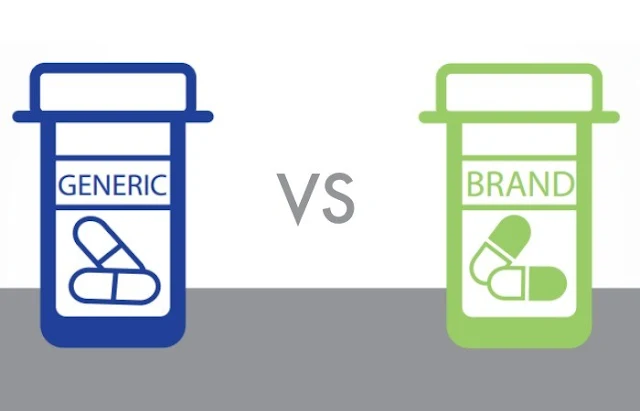Introduction
In the world of healthcare, the availability of generic and branded drugs provides consumers with options when it comes to their treatment. While branded drugs have long dominated the pharmaceutical market, generic alternatives have gained popularity due to their affordability. This article aims to explore the differences and similarities between these two types of drugs, shedding light on their quality, efficacy, and cost-effectiveness. By understanding these aspects, consumers can make informed decisions about their medication choices.
1. Definition
Branded drugs, also known as innovative or patent-protected drugs, are developed by pharmaceutical companies who invest significant time and resources into research, development, and marketing. They are protected by intellectual property rights for a specific period, allowing the company to recoup their investments. On the other hand, generic drugs are bioequivalent versions of these branded drugs, produced after the patent protection period has expired. Generic drug manufacturers do not invest in research and development since they utilize the same active ingredient, dosage form, strength, and route of administration as the original drug.
2. Active Ingredient and Composition
One of the key differences between generic and branded drugs lies in the name and appearance. Branded drugs are marketed with a proprietary name, while generic drugs are sold under their common or chemical names. However, both types must contain the same active ingredient, ensuring therapeutic equivalence. The inactive ingredients, such as fillers, binders, and coloring agents, may differ slightly between the two but do not affect the drug's effectiveness.
3. Safety and Efficacy
Generic drugs undergo rigorous regulatory scrutiny to ensure their safety and efficacy before entering the market. Regulatory bodies require generic drugs to demonstrate bioequivalence to the branded drug, meaning they must show similar absorption and distribution patterns in the body. This ensures that generic drugs provide the same therapeutic effect as their branded counterparts. However, it is important to note that some individuals may experience differences in response due to individual variations or sensitivity to inactive ingredients.
4. Price and Affordability
Perhaps one of the most significant advantages of generic drugs is their cost-effectiveness. Branded drugs tend to be more expensive due to the extensive research and development costs, as well as marketing expenses. Once the patent expiration allows generic drugs to enter the market, competition increases, leading to lower prices. This affordability benefit makes generic drugs a viable choice for individuals without insurance coverage or those seeking more economical treatment options.
5. Perception and Trust
Branded drugs often enjoy a perceived sense of trust and reliability due to their established reputation and marketing efforts. They are often the first choice for healthcare providers, who may believe that they are more effective or safer. Despite this perception, generic drugs are required to meet the same regulatory standards for safety, efficacy, and quality as branded drugs. Numerous studies have shown that there is little to no difference in therapeutic outcomes between generic and branded drugs, further reinforcing their reliability.
Read also: Evaluating the Efficacy and Effectiveness of Generic and Brand Medicines
Conclusion
In summary, both branded and generic drugs play important roles in the pharmaceutical industry. While branded drugs are often associated with higher costs and recognition, generic drugs offer affordable alternatives that are bioequivalent and equally effective. Understanding the differences and similarities between these two drug types empowers consumers to make informed choices that align with their healthcare needs and financial considerations. Ultimately, it is crucial to consult with healthcare professionals to determine the most suitable treatment option.


.webp)
I was diagnosed with Parkinson Disease for over 6 years which made me loose my job and my relationship with my Fiance after he discovered that i was having Parkinson, he departed from me, and i tried all my best to make him stays, but he neglected me until a friend of mine from UK told me Great healer, who will restore my life back with his powerful healing herbal medicine. then he sent me his email address and i quickly contacted him, and he said my condition can be solved, that he will treat the disease immediately only if i can accept trust on him and accept his terms and condition, i Agreed because i was so much in need of help by all means, so i did all he instructed me to do. And surprisingly after two weeks, He sent me a text, that i should hurry up to the hospital for a checkup, which i truly did, i confirm from my doctor that i am now ( PARKINSON NEGATIVE) my eyes filled with tears and joy, crying heavily because truly the disease deprived me of many things from my life, This is a Miracle, dr imoloa also uses his powerful herbal medicine to cure the following diseases: lupus disease, mouth ulcer, mouth cancer, body pain, fever, hepatitis A.B.C., syphilis, diarrhea, HIV/AIDS, Huntington's Disease, back acne, Chronic renal failure, addison disease, Chronic Pain, Crohn's Disease, Cystic Fibrosis, Fibromyalgia, Inflammatory Bowel Disease, fungal nail disease, Lyme Disease, Celia disease, Lymphoma, Major Depression, Malignant Melanoma, Mania, Melorheostosis, Meniere's Disease, Mucopolysaccharidosis , Multiple Sclerosis, Muscular Dystrophy, Rheumatoid Arthritis, Alzheimer's Disease, parkison disease, vaginal cancer, epilepsy, Anxiety Disorders, Autoimmune Disease, Back Pain, Back Sprain, Bipolar Disorder, Brain Tumour, Malignant, Bruxism, Bulimia, Cervical Disk Disease, cardiovascular disease, Neoplasms, chronic respiratory disease, mental and behavioural disorder, Cystic Fibrosis, Hypertension, Diabetes, asthma, Inflammatory autoimmune-mediated arthritis. chronic kidney disease, inflammatory joint disease, impotence, feta alcohol spectrum, Dysthymic Disorder, Eczema, tuberculosis, Chronic Fatigue Syndrome, constipation, inflammatory bowel disease, bone cancer, lung cancer. contact him on email- drimolaherbalmademedicine@gmail.com.
ReplyDeletePost a Comment
Full Name :
Adress:
Contact :
Comment: